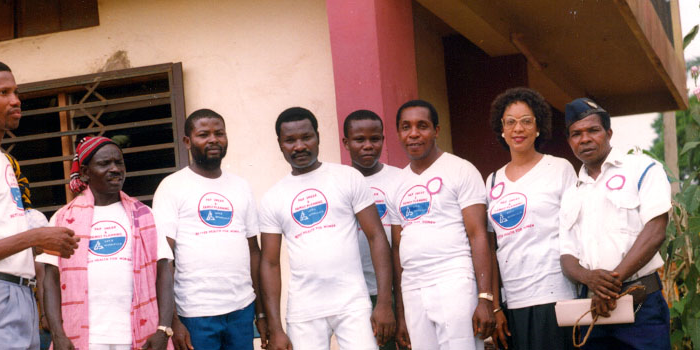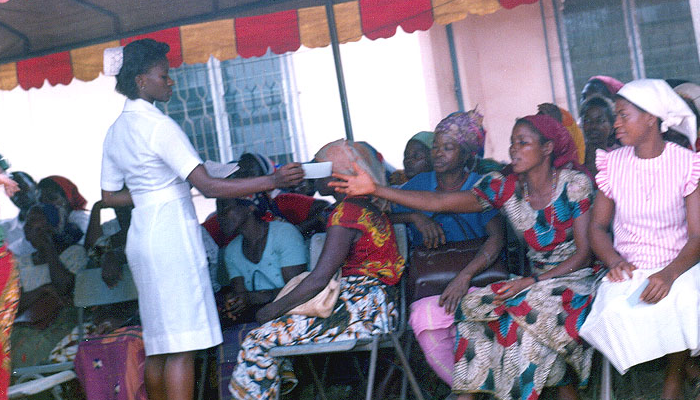Like many healthy American citizens, I didn’t think much about vaccines beyond the ones my babies got, or those needed for travel. Our family usually traveled to visit my husband’s family in Nigeria every three or four years. After one of our visits, my husband was offered a position as a lecturer at a relatively young College of Medicine in Nigeria.
After teaching there for four years, in 1981, my husband and I fulfilled his lifelong dream of starting the first hospital in his rural hometown. Using most of our savings, we rented an apartment building and made a few structural changes to get our hospital ready. While my husband worked to recruit and train staff, I found a teaching position in a nearby town.
The hospital opened in July, and in August we organized an official opening with illustrious townspeople, political leaders, market women, local musicians, and clergy in attendance. Life was hectic but looked like all would work out well.

The Unvaccinated Reality
Halfway through the next year, one of my husband’s classmates stopped by our house to chat. After catching up on family and community, he started an uncomfortable conversation about “our new hospital.” From what he had heard since returning to the town, our hospital was not doing well. He’d heard that so many families had lost children taken there for emergency care.
Then, he asked, were we wasting our time if we couldn’t care for them? This assessment was deflating. But when we decided to review our hospital records and organize patient statistics, the problem was revealed in less than five days.
Unvaccinated children were coming to the hospital with measles, many at the point of death.
Because we were the only hospital in town, people often tried local remedies before coming in. They were in much worse shape than they would have been if the hospital had been their first stop.
In the US, measles was (and is) rare due to effective immunization policies for children within the first year of life. In Nigeria, measles was often fatal, especially for undernourished children. Our staff was being confronted with a health problem that needed prevention, not treatment. Vaccinating young children on time would save lives.

An Ounce of Prevention
We contacted the nearest public health clinic, located three towns away. We had no mobile immunization services like those in the US. Instead, we consulted with the town’s chief and other community leaders to plan a campaign to educate the public about vaccines. The essential message to convey was that measles was a disease that children didn’t need to experience. Immunization would prevent it.
Over the next few months, we repeated this campaign in several nearby towns. We always engaged with the leaders in those communities first, explaining why vaccinations were needed.
At our hospital, we’ve continued offering immunizations and educating about their importance at prenatal and well-child clinics. Today, MMR vaccines are widely accepted in our community, and measles cases are extremely rare. Our hospital is turning 43 and continues to serve our growing town and nearby communities.
As for those in the U.S. who disdain the need for immunizations, I wonder if they would maintain that view if they actually saw the widespread childhood deaths we experienced before vaccines, knew the bereaved families, and understood the fast progression of measles in babies.
Once people in our community saw how effective measles vaccination was, it became accepted as part of well child care.
Author is [bio]. Her story, like all others on this blog, was a voluntary submission. If you want to help make a difference, submit your own post by emailing us through our contact form. We depend on real people like you sharing experience to protect others from misinformation.
